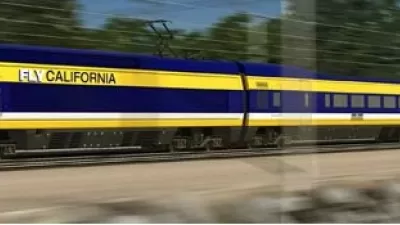Will California gas station see queues at their pumps on Dec. 31 as motorists seek their last fill-up before gas prices soar 15 cents per gallon, as AB 69 supporters warned? The bill died in the state legislature on August 22.
Marc Lifsher of the Los Angeles Times writes from Sacramento, "The bill, AB 69, was designed to head off what [Assemblymember Henry T. Perea (D-Fresno)] and allies -- in a major multimedia public relations campaign -- called a 'hidden gas tax' of as much as 15 cents a gallon extra that consumers are going to start paying at the pump in January."
The additional cost that Perea referred to would actually be pass-on costs from the transportation fuel companies' participation in the state's cap and trade program operated by the California Air Resources Board (CARB).
"If we are serious about reducing fuel costs and righting the public health and economic wrongs facing our constituents, we must wean ourselves off fossil fuels and invest in cleaner transportation alternatives and in low-income communities as we did in this year's budget," Steinberg wrote.
"The regulations are expected to raise $2 billion to $3 billion in new state government revenue next year," writes Lifsher. How the funds would be distributed was posted here.
However, "(f)uel companies have already begun participating in the state’s cap-and-trade auctions, buying pollution credits that they can use to help them meet the greenhouse gas emission cap set by the state. Emission caps will not apply to the fuel industry until this coming January, but they have had years to prepare for it," writes Melanie Curry of Streetsblog.
By law, 25 percent of cap and trade funds must be directed to low income, disadvantaged communities—ultimately benefiting Perea's constituents in Fresno and the Central Valley.
[Hat tips to Melanie at Streetsblog LA and Jackie at Climate Plan]
FULL STORY: Gas prices to rise in January after bill to suspend 'hidden' tax fails

Planetizen Federal Action Tracker
A weekly monitor of how Trump’s orders and actions are impacting planners and planning in America.

Map: Where Senate Republicans Want to Sell Your Public Lands
For public land advocates, the Senate Republicans’ proposal to sell millions of acres of public land in the West is “the biggest fight of their careers.”

Restaurant Patios Were a Pandemic Win — Why Were They so Hard to Keep?
Social distancing requirements and changes in travel patterns prompted cities to pilot new uses for street and sidewalk space. Then it got complicated.

Platform Pilsner: Vancouver Transit Agency Releases... a Beer?
TransLink will receive a portion of every sale of the four-pack.

Toronto Weighs Cheaper Transit, Parking Hikes for Major Events
Special event rates would take effect during large festivals, sports games and concerts to ‘discourage driving, manage congestion and free up space for transit.”

Berlin to Consider Car-Free Zone Larger Than Manhattan
The area bound by the 22-mile Ringbahn would still allow 12 uses of a private automobile per year per person, and several other exemptions.
Urban Design for Planners 1: Software Tools
This six-course series explores essential urban design concepts using open source software and equips planners with the tools they need to participate fully in the urban design process.
Planning for Universal Design
Learn the tools for implementing Universal Design in planning regulations.
Heyer Gruel & Associates PA
JM Goldson LLC
Custer County Colorado
City of Camden Redevelopment Agency
City of Astoria
Transportation Research & Education Center (TREC) at Portland State University
Camden Redevelopment Agency
City of Claremont
Municipality of Princeton (NJ)



























